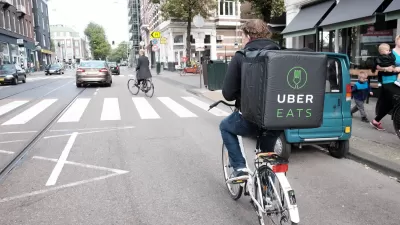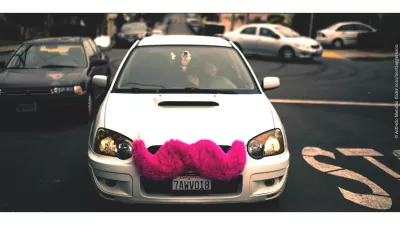Cities have transformed in profound ways, but more recent changes were the last part of a series of technology waves.

"For many years we've been promised that the marriage of technology and the city, the 'smart city,' would revolutionize urban life. But for a long time the term has essentially been a buzzword attached to different concepts over three distinct generations, accompanied by generous measures of hype and, lately, some serious questions about who's in the driver's seat," writes Aaron M. Renn.
The first generation focused on developing technology solutions to help cities manage operations for services such as water and transit. The second generation involved the promotion of open data to help cities run more smoothly. These first two generations kept cities in control of technology, but they failed to revolutionize urban areas, says Renn.
The third generation did transform cities, but the private sector deployed its technology in urban environments to provide goods and services to consumers and largely left government out of the process. Companies such as Uber, Lyft, and Airbnb often bypassed regulatory structures to change and shape cities.
"In many cases cities are struggling to catch up, sometimes not even knowing what's happening under their noses. This will be a profound challenge not just for governments, but also to our idea of the urban social contract and the division of functions between the public and private sectors," adds Renn.
FULL STORY: How Cities Lost Control of the Urban Tech Revolution

Alabama: Trump Terminates Settlements for Black Communities Harmed By Raw Sewage
Trump deemed the landmark civil rights agreement “illegal DEI and environmental justice policy.”

Planetizen Federal Action Tracker
A weekly monitor of how Trump’s orders and actions are impacting planners and planning in America.

The 120 Year Old Tiny Home Villages That Sheltered San Francisco’s Earthquake Refugees
More than a century ago, San Francisco mobilized to house thousands of residents displaced by the 1906 earthquake. Could their strategy offer a model for the present?

Ken Jennings Launches Transit Web Series
The Jeopardy champ wants you to ride public transit.

BLM To Rescind Public Lands Rule
The change will downgrade conservation, once again putting federal land at risk for mining and other extractive uses.

Indy Neighborhood Group Builds Temporary Multi-Use Path
Community members, aided in part by funding from the city, repurposed a vehicle lane to create a protected bike and pedestrian path for the summer season.
Urban Design for Planners 1: Software Tools
This six-course series explores essential urban design concepts using open source software and equips planners with the tools they need to participate fully in the urban design process.
Planning for Universal Design
Learn the tools for implementing Universal Design in planning regulations.
Clanton & Associates, Inc.
Jessamine County Fiscal Court
Institute for Housing and Urban Development Studies (IHS)
City of Grandview
Harvard GSD Executive Education
Toledo-Lucas County Plan Commissions
Salt Lake City
NYU Wagner Graduate School of Public Service




























